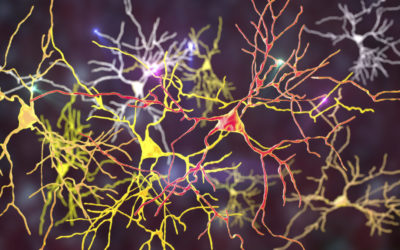Different areas of the brain are associated with empathy – this new research shows how brain regions synchronise to induce empathic responses.

No change for a century – children’s backgrounds still predict the same educational outcomes

Educational opportunities have changed dramatically for children over the last century – schools have changed, and college and university admissions have grown. Or so we might think at least.
But according to a study out of the University of York, that is not the case. They analysed data from 92,000 students between 1921 and 2011 and they found that the achievement gap between those from impoverished backgrounds has remained stagnant over this 90-year period.
Part of the reason for this is this gap that already exists on entering school. This means that although there may be greater learning opportunities, they cannot take advantage of it.
Focusing on equal opportunities is therefore one thing, but ensuring that those who really need the support at critical times, seems to be much more important.
Reference:
Sophie von Stumm, Sophie Nicole Cave, Paul Wakeling.
Persistent association between family socioeconomic status and primary school performance in Britain over 95 years.
npj Science of Learning, 2022; 7 (1)
DOI: 10.1038/s41539-022-00120-3
More Quick Hits
New Discovery: Swirling Spirals Move Across Your Brain
Zapping the Brain Improves Maths Ability
Different areas of the brain are associated with empathy – this new research shows how brain regions synchronise to induce empathic responses.
Developing Self Control in Children
Different areas of the brain are associated with empathy – this new research shows how brain regions synchronise to induce empathic responses.
Surprising Discovery on the Social Brain
Different areas of the brain are associated with empathy – this new research shows how brain regions synchronise to induce empathic responses.
How Emotional Satisfaction (not “Happiness”) Improves Students’ Grades
Different areas of the brain are associated with empathy – this new research shows how brain regions synchronise to induce empathic responses.
The Little Known Brain Cells that Help You Stay Awake and Keep Your Brain Active
Different areas of the brain are associated with empathy – this new research shows how brain regions synchronise to induce empathic responses.
Unfair! Brain Circuit for Fair Rewards Identified
Different areas of the brain are associated with empathy – this new research shows how brain regions synchronise to induce empathic responses.
Brain Cells of Males and Females Respond Differently to Stress
Different areas of the brain are associated with empathy – this new research shows how brain regions synchronise to induce empathic responses.
Work in the Presence of Others Lowers Stress
Different areas of the brain are associated with empathy – this new research shows how brain regions synchronise to induce empathic responses.
Humans Give Unconditional Small Acts of Kindness – Continuously
Different areas of the brain are associated with empathy – this new research shows how brain regions synchronise to induce empathic responses.


















 In an age where it appears that many people are vying for self-esteem especially through social media, this research is interesting. Particularly in business contexts where cooperation is king.
In an age where it appears that many people are vying for self-esteem especially through social media, this research is interesting. Particularly in business contexts where cooperation is king.